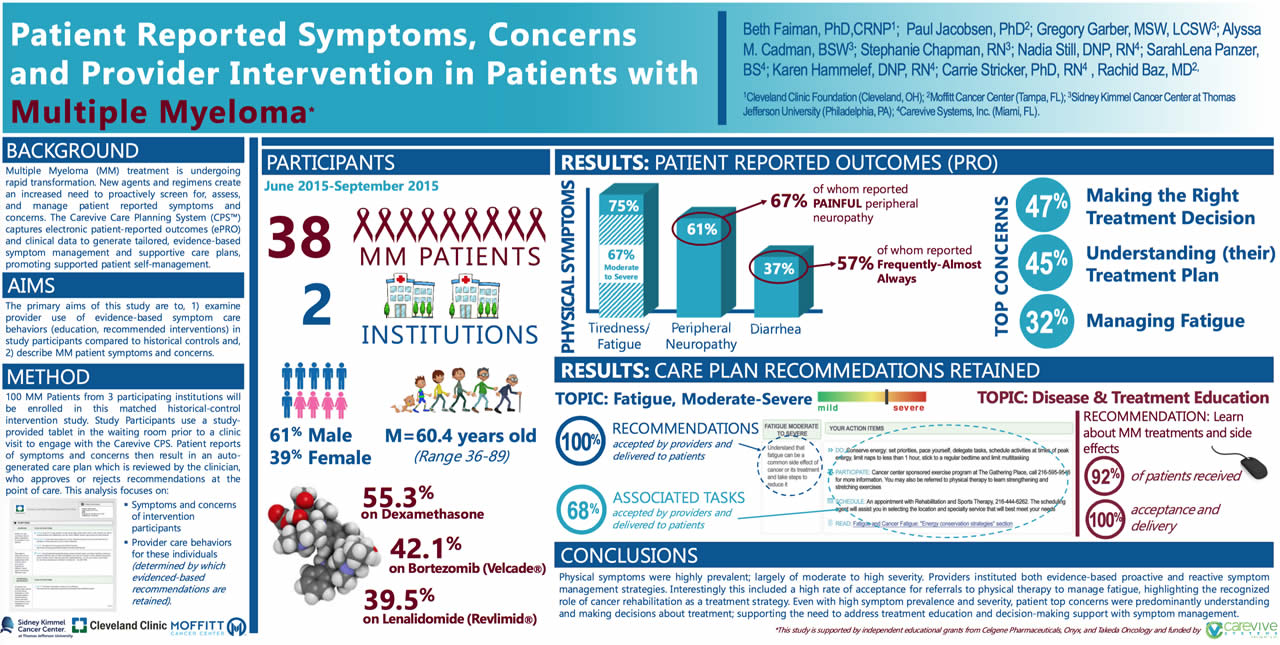
Patient Reported Symptoms, Concerns and Provider Intervention in Patients with Multiple Myeloma
BethFaiman,PhD,CRNP1; PaulJacobsen,PhD2; GregoryGarber,MSW,LCSW3; Alyssa M. Cadman, BSW3; Stephanie Chapman, RN3; Nadia Still, DNP, RN4; SarahLena Panzer, BS4; Karen Hammelef, DNP, RN4; Carrie Stricker, PhD, RN4 , Rachid Baz, MD2
1Cleveland Clinic Foundation (Cleveland, OH);
2Moffitt Cancer Center (Tampa, FL);
3Sidney Kimmel Cancer Center at Thomas Jefferson University (Philadelphia, PA);
4Carevive Systems, Inc. (Miami, FL)
Background
Multiple Myeloma (MM) treatment is undergoing rapid transformation. New agents and regimens create an increased need to proactively screen for, assess, and manage patient reported symptoms and concerns. The Carevive Care Planning System (CPSTM) captures electronic patient-reported outcomes (ePRO) and clinical data to generate tailored, evidence-based symptom management and supportive care plans, promoting supported patient self-management.
Aims
The primary aims of this study are to, 1) examine provider use of evidence-based symptom care behaviors (education, recommended interventions) in study participants compared to historical controls and, 2) describe MM patient symptoms and concerns.
Methods

This analysis focuses on:
- Symptoms and concerns of intervention participants
- Provider care behaviors for these individuals (determined by which evidenced-based recommendations are retained).
Conclusions
Physical symptoms were highly prevalent; largely of moderate to high severity. Providers instituted both evidence-based proactive and reactive symptom management strategies. Interestingly this included a high rate of acceptance for referrals to physical therapy to manage fatigue, highlighting the recognized role of cancer rehabilitation as a treatment strategy. Even with high symptom prevalence and severity, patient top concerns were predominantly understanding and making decisions about treatment; supporting the need to address treatment education and decision-making support with symptom management.




